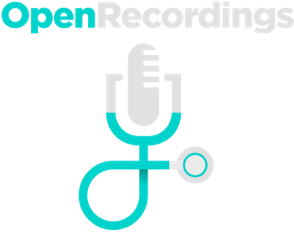
Patients recording clinical encounters: A path to empowerment? Assessment by mixed methods
Principal Investigators
Glyn Elwyn MD PhD, Paul James Barr PhD, MScPH, Stuart W. Grande PhD
Public Health Relevance
Patient-proctored audio recordings have the potential to fundamentally alter the doctor-patient relationship. While audio recordings have been associated with a multitude of positive impacts on the patient treatment experience, the use of covert recordings has the potential to damage the mutual trust between doctor and patient. In order to fully realize the benefits of audio recordings, the practice should be normalized in the medical community in order to minimize the adverse effects associated with covert recordings.
Funding Source
n/a
Project Period: April 2015 – June 2015
Dartmouth College Project Staff: Michelle D. Dannenberg, MPH; Shayne Dodge; Jesse Schoonmaker, MD, MPH; Molly Caiss; Martha L. Bruce, PhD; Elizabeth Khusid; A. James O’Malley, PhD
Project Summary
The ubiquity of mobile technology has caused the patient recording of physician’s visits to become an increasingly common practice. The novelty of such recordings necessitates an in-depth analysis of the motivations, benefits, and concerns associated with patient recordings to help charter a path toward its widespread and responsible use. This mixed methods study utilizes a web-based survey of patients (n=130) in conjunction with follow-up interviews (n=17) to provide a scoping assessment of the audio-recording landscape in the U.K.. Upon quantitative and qualitative analysis, researchers identified key patient motivations for recording their visits, the rationale behind their decision to record covertly or with permission, their intended use of these recordings and, finally, the outcomes associated with the utilization of recordings. This study found that patients were primarily motivated to record their visits in order to enhance their understanding of their encounter with physicians, often sharing their recordings with others. Another important finding of this study was the rationale behind patients’ decisions to record covertly or with permission. Those patients who elected to seek provider permission to record cited a desire to prioritize the doctor-patient relationship and protect their mutual trust. Patients who opted to record covertly often cited a lack of trust in the care process, a poor prior experience with medical professionals, or a fear of the physician’s denial of permission as driving their decision.

